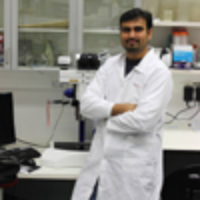Laser Doppler Flowmeter as a Periodontal Evaluation Method: A Clinical Pilot Study
Published on: 9th October, 2023
Background and objectives: Periodontal disease, as an inflammatory pathology, induces hemodynamic changes that can be evaluated by different unbiased methods such as laser Doppler flowmetry. This clinical investigation assesses laser Doppler as a non-invasive procedure to monitor gingival vascularization and its potential relationship with the response to treatment of periodontal disease.Materials & methods: 45 sites of white Spanish patients with active periodontitis undertake a complete periodontal analysis. This included periodontal pathogens identification along with the monitoring of the gingival margin microvascularization using a Doppler laser at the points exhibiting the most periodontal damage. All assessments were performed before and after periodontal combined treatment PCT (scaling, root planing, and antibiotic therapy prescription) (n = 45 sites).Results: Parameters of periodontal disease showed a positive correlation with pathogen levels. Blood flow readings decreased significantly after PCT (p < 0,05), although this parameter was not statistically correlated with periodontal nor microbial assessments in a significant range.Conclusion: Laser Doppler is a complementary method of monitoring periodontal inflammation to traditional techniques of clinical periodontal evaluation. Further studies are necessary to determine its usefulness as a predictive method of periodontal disease evolution.
Use of Lactobacillus reuteri DSM 17938 in the treatment of Stage II-III Periodontitis: Longitudinal Study of 36 Patients
Published on: 11th March, 2024
Periodontal diseases are a consequence of the host’s inflammatory and immune mechanisms against dysbiotic bacterial plaque. Given the role of probiotics in biofilm control and modulation of dysbiosis, this study assessed the efficacy of a specific strain of Lactobacillus Reuteri, DSM 17938, in the treatment of stage II and III periodontitis. 36 patients were randomly allocated into two groups: group A, the treated group; and Group B, the control group. The treated group and the control group both underwent initial periodontal debridement. Patients received medications after undergoing periodontal debridement. Clinical parameters were assessed at baseline and at 21 days. All parameters evaluated, Probing Depth (PD), Full Mouth Bleeding score (FMBS), and Full Mouth Plaque Score (FMPS) showed a reduction over time in both groups. The treated group showed a better reduction (p = 0.05) for PD. As far as the depth of probing is concerned, the decrease observed between the control group and the group treated with probiotics is such as to be considered statistically significant and since the average of the values for the treated group is higher than that of the control group, the use of probiotics has an efficacy of medium statistical importance in the treatment of periodontal disease.




